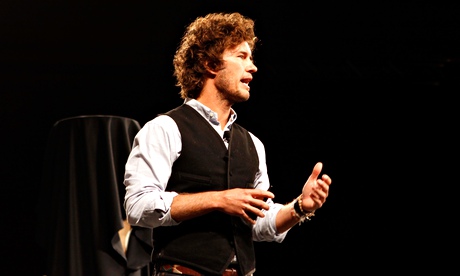Bain’s 50% stake in Toms shoes shows faith in socially-minded business
The ethical shoe company is valued at $625m despite selling a relatively dull product and giving half its stock away – does Bain’s investment recognise that purpose can drive profits?

What is the key to profit for the next generation of consumers? Bain Capital thinks it is purpose.
Last week, the private equity firm took a 50% stake in Toms, a socially-conscious footwear company valued at $625m (£377m). Toms pioneered the “buy one give one” model of conscious commerce. They give a pair of shoes to a child in need for every pair they sell.
Toms will use this capital to expand more rapidly than it otherwise would be able to on its own. Bain will bring operational expertise including a new CEO to oversee the expansion and leverage its experience growing retail brands such as Canada Goose, Michaels and Dunkin’ Brands.
So, has Toms sold out? With Bain Capital in control of half the company and running the management team, will Toms be able to stay committed to its one-for-one model? Blake Mycoskie, founder and chief shoe giver of Toms, thinks so. He said, “We need a strategic partner who shares our bold vision for the future and can help us realise it. We’re thrilled that Bain Capital is fully aligned with our commitment to One for One, and clearly they have the expertise to help us improve our business and further expand the scale of our mission.”
Those are nice sentimental words, but is it really in Bain Capital’s interest to retain the social mission of Toms? Isn’t their purpose at odds with making profit?
Traditional business thinking dictates that profit and purpose are at odds with each other, that doing good will cost the company money. Toms stands as a counterintuitive example of purpose actually driving profit. The company has sold and given away 20m shoes. With its least expensive shoe selling for $54, the company has generated over a billion dollars of sales.
Increasingly, consumers would rather do good with their purchases than give to charity. A recent survey from marketing company Good Must Grow indicates that for the second year in a row, 30% of US consumers plan to increase their purchases towards socially responsible companies in the coming year. Meanwhile, only 18% plan to increase charitable giving in 2014, a decline from 21% in 2013. A recent Nielson study also shows that consumers place a premium value on these products; 55% of global consumers are willing to pay more for products from companies that are committed to positive social and/or environmental impact.
Additionally, millennials – Toms’ target demographic – particularly want their purchases to have purpose. According to the 2013 Cone Communications CSR Study, 72% of millennials believe that they can make a positive social and environmental impact through their purchases and 51% check the packaging to ensure social and environmental impact. However, only 31% of millennials will conduct further research on the impact claims of a company they are buying from.
The “one-for-one” model is perfectly crafted for a millennial consumer who wants to feel good about their purchases but needs a clear, simple and tangible means of understanding the social purpose of the company through point-of-purchase marketing.
Though a new CEO will take the reins of day-to-day operations, Mycoskie, who still holds a 50% stake in the company, does not plan to abandon his post anytime soon. Instead, his focus will shift to expanding new categories.
So far Toms has expanded beyond shoes into sunglasses in 2011 (for every pair purchased, Toms will help give sight to a person in need), and to coffee in 2014 (for each bag of coffee beans sold a person will get clean water for a week, and for every cup of coffee sold someone gets water for day.)
A quick glance at the domains and the trademarks owned by Toms gives some indication of the vast array of products and services Mycoskie is considering including such as tea, cocoa, luggage, hotel services, news services, wearable technology, ticketing, credit cards, student loans, bicycles, water and wine. One of their trademarks is “You drink, we dig”, which might hint at a partnership with Charity: Water, with whom they have collaborated in the past on both special edition shoes and sunglasses.
The question remains whether Toms can translate the success it has had with shoes into other categories. Given its success at selling a relatively boring canvas shoe, it stands a good chance of infusing purpose into other boring products like credit cards and student loans thereby grabbing the millennial wallet-share.
Perhaps Bain Capital will retain the social mission at Toms precisely because that is what will drive higher profits. “As a firm and as individuals, we are strongly aligned with the principles of the One for One movement and its contribution to the global community,” said Ryan Cotton, a principal at Bain Capital.
Should they have taken a risk on a millennial consumer motivated by purpose to drive profit for years to come? Well, if the shoe fits, wear it.
No comments:
Post a Comment